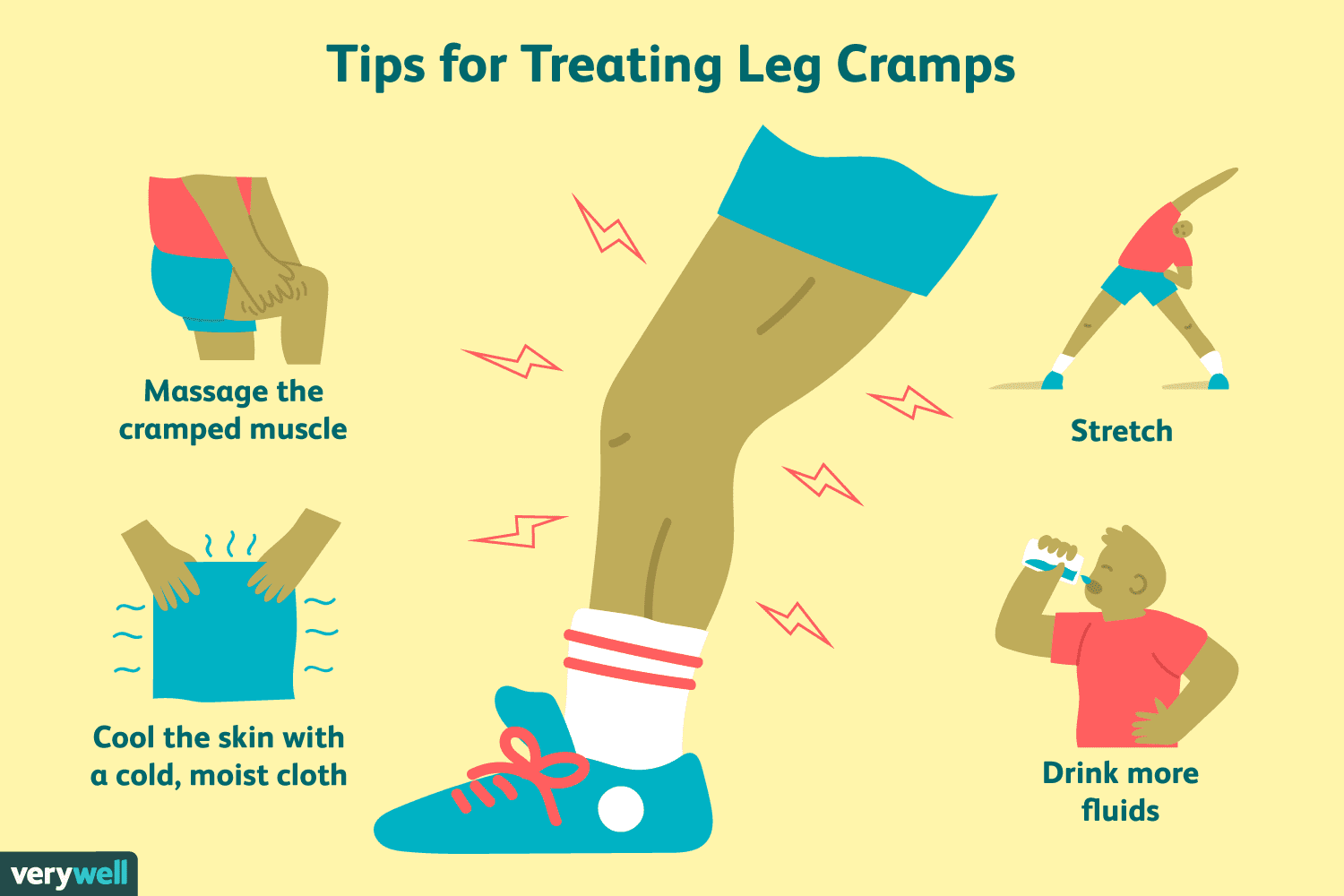
Leg cramps occur when muscle fibers contract. Most common areas for a cramp are the legs, feet, calves, and lower back. This condition can affect one or several muscles. It can range from a minor tic to excruciating pain. The muscles can be hard to touch and may appear distorted or twitch beneath the skin. It usually lasts a few seconds to 15 minutes, and goes away on its own.
Those with mild cramps should try taking over-the-counter pain medicine, such as ibuprofen (Advil, Motrin), or naproxen (Aleve). It is important to follow the instructions on the label, and to drink plenty of water to stay hydrated. Also, standing upright, flexing the foot towards the knee, or pulling a towel toward the knee can help. These remedies can help ease cramp symptoms and provide temporary relief.
Generally, muscle cramps occur in the legs, but they can occur in any area of the body. A sharp pain in the affected muscle can be felt, and a hard lump may form. The cramp can last anywhere from a few seconds to a few minutes, depending on its severity. The painful symptoms can prevent the sufferer from walking or performing any activity. Some people also suffer from low blood carbon dioxide or arteriosclerosis of the extremities, which may be the cause of their cramps.
Fortunately, there are various ways to prevent and relieve muscle cramps. Firstly, it is important to stay hydrated. Dehydration can disturb the mineral and electrolyte balance in your body, causing you to have a tetany cramp. Secondly, excessive exercise can lead to dehydration and lower levels of electrolytes. Lastly, wearing high-heeled shoes can make your muscles more susceptible to cramps.
The best way to prevent leg cramps is to keep your body well-hydrated. Drink plenty of water, and you can eat fish, such as salmon and tuna. These are rich in Omega 3 fatty acids, which help relax muscle tissue and reduce cramps. For the most effective relief, avoid wearing tight clothes. These tight clothes can cause pain and discomfort. Instead, wear dresses or yoga pants, or avoid wearing tight pants. Your body needs these nutrients to function properly.

A muscle cramp can be painful and even prevent you from walking. This can interfere with your sleep and make it difficult for you to ease into your life. Muscle cramp symptoms may last a short or long time, depending on the severity of the symptoms. For most people, cramps are not a serious problem, but they can be annoying. The only thing you can do is try to relax your muscles. This will help you sleep more soundly at night.
The main cause of muscle cramps is lack of fluid. The body requires a certain amount of water to perform daily tasks such as walking. When your muscles are not hydrated enough, they cannot function properly. Often these muscles do not function properly and muscle cramps may occur. In these cases, you will have to drink a lot of water. Your muscles need the right amount of water to function properly. They also need to have enough oxygen.
If you have a muscle cramp, the pain is usually severe. It may even affect your ability to walk. The pain in your legs may be so severe that you cannot stand for long. These cramps may only last a few seconds, but can last as long as 15 minutes. This condition is often caused by poor posture, anxiety, or low blood sodium levels. The body's mineral balance is disrupted and the resulting decrease in oxygenation can cause these problems.
Besides the symptoms of cramps, the most common cause of cramps is a lack of sodium and magnesium. This dehydrates the body, so a person with a dehydration problem may experience cramps. If you have cramps that cause you to lose water, you need to drink a lot of water. Otherwise, you may experience symptoms of acidosis or kidney disease. In such cases, you should immediately consult a doctor and get advice on the website Kopertis 4.
